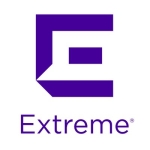I use the solution in my company, considering that I deal with retail customers. Nowadays, the tool is connected to a handheld scanner. The tool is mostly used for the scanner and price tag, and being connected to Wi-Fi helps update the price.
Aruba Access Points can configure the virtual controller to manage multiple IPs, so our company doesn't have to set up a physical controller to manage it. Yeah. The tool has virtual controller features.
The product fails to provide better and extended coverage, making it in an area where improvements are required in the tool.
I have been using Aruba Access Points for five years.
Stability-wise, I rate the solution an eight out of ten.
The new firmware is not always stable. Sometimes, Aruba releases new firmware, but they may have some issues.
It is a scalable solution.
More than ten of our company's customers use Aruba Access Points. I think the tool has 1,000 users.
The technical support for the solution has been good so far. I rate the technical support an eight out of ten.
If I consider the response time of the support team, then I would rate it a seven out of ten.
I use AP Wizard to help me with the deployment process. The deployment process is straightforward.
The solution is deployed on the cloud and on an on-premises model.
The solution can be deployed in fifteen minutes.
One engineer is required to deploy the product.
The tool's ROI is quite good.
It is a reasonably priced tool.
The solution improved IoT device connectivity and management in my company by providing a wide coverage. Some of the models of Aruba Access Points come with no antennas, and some models cannot operate in a minus degree environment, like for the products kept in the freezer, and I know this because my customer runs a supermarket. Mostly, Aruba Access Points cannot be installed in extreme environments.
The performance of the product is okay.
The product has simplified my company's network administration tasks because it has a centralized management feature, so through a single platform, the management team can manage multiple IPs.
The product is easy to deploy and manage. The price is also reasonable. You can also get support for the product on time.
I rate the tool a nine out of ten.











